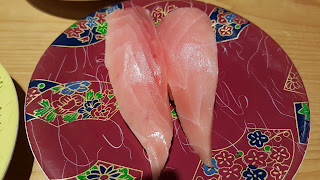Hi all!
It wasn't too long ago that I read an interesting article from
BULLy the BEAR about calculating his overall networth. He seemed elated that he reached an overall networth of 0!
Naturally, I took up a pencil and did some back-of-the-envelope calculations...
Shock and horror!
A simple breakdown of my assets would be:
- Estimated amount of cash I am holding
- Estimate of all my bank accounts
- All of my CPF
Coming up to a grand total of $56k!
And my liabilities:
- HDB loan of $520k!!!
And my personal networth would therefore be $520k-$56k = -$464k!!!
Oh dear :( Now I can see why LP was so ecstatic to achieve 0 networth.
Deciding to try to cheer myself up somewhat, I did a brief estimate of my wife's networth. Her total assets would come up to roughly $100k, which would give our family an overall networth of about -$364k!
Since I was young, I have always strived to be debt-free. This has been ingrained in me since I was young. Hence, to suddenly realise I am actually in significant debt still comes as a rude shock.
Come to think of it, I did sign on the papers to take on the HDB loan. Hence, this debt is not new or foreign. It is just that during our day-to-day life, the thought of owning HDB a huge sum of money just does not come to mind easily.
Which brings us to the point: How many of us are acutely aware of the financial state we are actually in?
Indeed, while most of us are familiar with our current assets, there are many of us who do not give a second thought to our current debts. At most, we give it a fleeting thought, and it seems uncomfortable to even concentrate on it.
We are surrounded by debt. The most commonly talked about would be credit card debt. However, there are many insidious forms of debt that we do not usually recognize.
Did you purchase any items recently on an "interest-free" instalment plan? That is a form of debt.
Do you have a current handphone/tv subscription with any of the telcos? It is effectively a form of debt, a sum of money that we have to pony up monthly unless we pay an early termination fee. In terms of payment plan, the subscription fee is effectively like the monthly housing mortgage. Yet, we do not usually think of it as such due to the smaller amount of money involved, and it seems easier on our account books to treat it as a rolling expense.
And of course, not forgetting the usual housing/car loan.
I am thankful that I just recently paid off my student loan based on advice from my wife. This has significantly reduced my liabilities, and relieved me of a significant portion of debt-stress.
In view of the still-very-significant debt burden that I have, I want to grow my assets and pay off my liabilities to the best of my abilities. With this, I wish that we will all hang in tight and travel with me as we seek a brighter future ahead.




